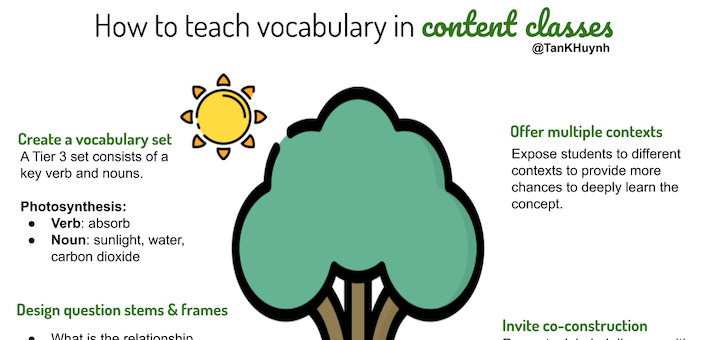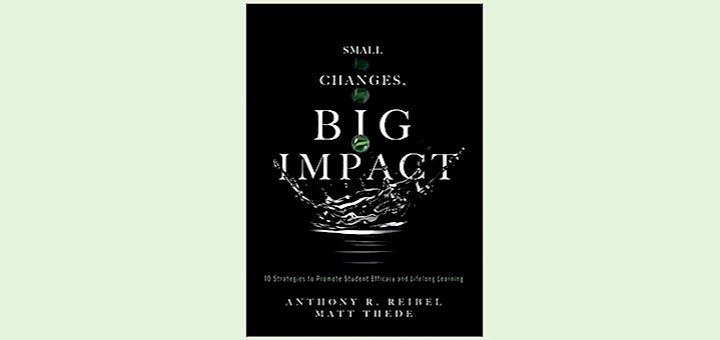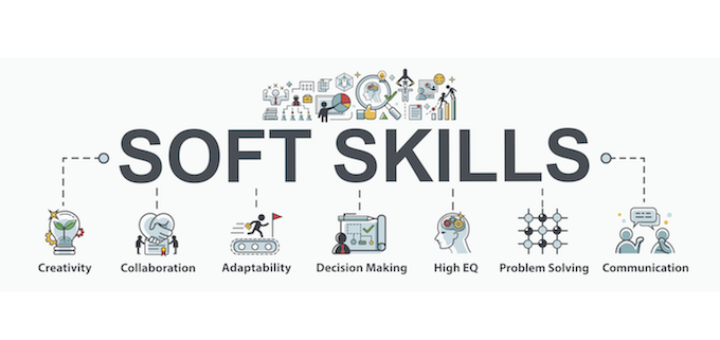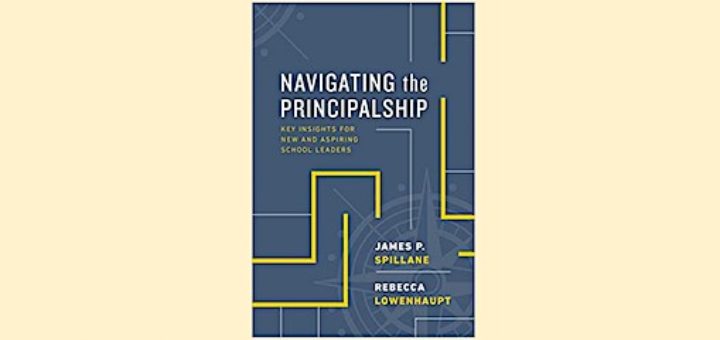Teaching and learning in grades 4-8
Michelle Russell’s math students depend on her to be cheerful and happy in these difficult times. That can be a challenge, she admits, “but having some new (or not so new) activities to try gets me excited and energized to come to work. I figure that’s good for everybody!”
If there’s ever been a year for reflection and pampering during winter break, then 2020 is that year. A.P. DeAnna Miller intends to set aside time to write and reflect on what worked and what needs changing. And she will “really and truly” revive and embrace the self-care routines she loves.
A school is an ocean of words, and many language learners are drowning in academic classes when content-specific words (Tier 3) are not explicitly taught. Tan Huynh shares an effective process to teach these specialized words from author and EL educator Stephen Fleenor.
Small Changes, Big Impact can guide educators in making 10 research-based changes that will have a significant positive impact on the culture and learning in a school, writes middle level teacher Kristen Donnelly, who says the ideas are aimed primarily at schoolwide reform.
When the pandemic began Jeremy Hyler and his 6th graders were working on argument writing – choosing topics, evaluating sources and drafting opinions. How to simulate all that online? His colleague Dr. Troy Hicks offered to help. Here’s the 2-part lesson they came up with.
Cutting-edge teachers never answer the question “why do we need to learn this” with vague references about an unlikely future, writes curriculum coordinator Alex Valencic. Instead, they provide “instant relevancy” and respond with immediate examples from our lives today.
The 2016 Gallup Poll of Students asked nearly a million tweens and teens in grades 5-12 about engagement in learning. The results were not encouraging, writes author Patti Drapeau. Teachers need to move beyond the “what” of engagement to focus on the “why.”
Students need to explore critical questions about topics relevant to their lives, writes Kasey Short. In the past she’s organized debates, but hybrid teaching prompted her to try ‘elevator pitches.’ Kids enjoyed researching issues, doing bias checks and creating short videos.
Navigating the Principalship offers real insight into a principal’s work, spending equal time on the rewards and challenges of the job. Teacher leader and aspiring principal Michael DiClemente says new and soon-to-be school leaders will benefit from the book’s many profiles.
Whether you’re online, hybrid, or wholly in person – teaching solo or co-teaching – the Community of Inquiry “three presences” framework creates the supportive structure you and your students need to stay focused on learning, writes instructional coach and NBCT Elizabeth Stein.







































